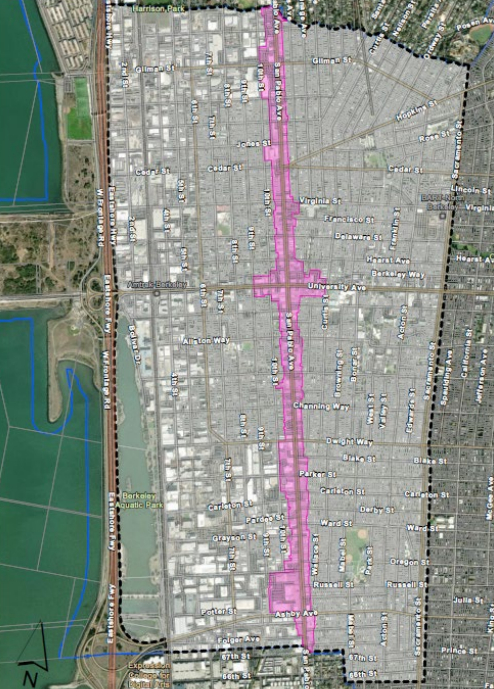State of the City, COVID-19 Vaccine Updates, and More Berkeley News
Join Us for the 2023 State of the City
You’re invited to this year’s State of the City Address & Reception on Thursday, September 28, at the Ed Roberts Campus.
Mayor Arreguin will be sharing important updates on the progress we have made to make Berkeley a safer, sustainable and more affordable city for all, including the latest updates on the future of the Ashby BART station and plans for his last year in office.
RSVPs are required to attend in person, and space is limited. If you are unable to make it in person, you can watch live online or on TV at Berkeley Community Media, Channel 33.
Updated COVID-19 Vaccines Now Available
As cases of COVID-19 rise across the country and immunity from previous vaccines and infections wanes, the FDA has recently approved a new updated COVID-19 vaccine by Pfizer and Moderna. The newest vaccine will provide protection against newer strains of the virus. According to the CDC, everyone aged 6 months and older should get an updated vaccine. For recommendations on dosage type by age, visit the CDC’s website.
Shipments of vaccines are on their way, but supplies may be limited at first. Contact your healthcare provider to see if they have availability and are accepting appointments. Local pharmacies may also have vaccine appointments. If you are an adult who is not insured, you can get a free vaccine through the CDC’s Bridge Access Program. Children who are not insured can get a free vaccine through the Vaccines for Children Program. Additional options are available through California’s My Turn.
The City of Berkeley is conducting outreach to the most vulnerable residents and we encourage everyone to stay up to date on their COVID-19 vaccines to keep our community safe. For more information about COVID-19 vaccines for Berkeley residents, click here.
Every household can now apply for a new batch of four COVID-19 test kits for free. To apply, visit the federal COVID-19 website. If you already have test kits at home, be sure to check the expiration date as it may have expired. To check the expiration date, visit the FDA website (some expiration dates have been extended, so the date printed on the test kit may not be accurate).
Community Outreach Begins on San Pablo Avenue Specific Plan
The San Pablo Avenue Specific Plan will cover land use and economic development along the area in magenta.
The City of Berkeley has launched a two-year study into the future of the San Pablo Avenue corridor, and is seeking community input. The plan, which covers the 2.35 mile stretch of San Pablo Avenue between Albany and Oakland, aims to put together a plan for the area that considers regional and citywide goals, including access to housing, equity, safer streets, sustainability, and an economically vibrant commercial corridor.
The San Pablo Avenue Specific Plan will primarily focus on land use policies and economic development programs, such as allowed uses, development standards, employment, and industry trends. The plan will outline programs and policies to encourage and support diverse housing, commercial activities, and public amenities. The plan will also assess the conditions and needs of different transportation options like public transit, biking, and walking and summarize potential parking and loading impacts in coordination with existing public improvement processes.
Over the next two years, community members and stakeholders will have multiple opportunities to provide input on the plan. This includes interviews, workshops, surveys, and tours. A draft plan and environmental impact report (EIR) is expected to be completed by early 2025, with review and recommendation from the Planning Commission in mid-2025 and approval of the plan by Council in late 2025. For updates and future opportunities for engagement, join the project mailing list here.
Worker Cooperatives Find Success in Berkeley
Worker Cooperatives such as the Cheese Board Collective are becoming an increasingly popular way to run a business.
Berkeley is known for advancing innovative policies, and when it comes to business, we are the capital of worker cooperatives. During the late 1960s/early 1970s, worker cooperatives became a popular option. These businesses, which are owned and run by employees, often provide higher wages, benefits, professional development, job security, and upward mobility for people of low to moderate income. Just as importantly, these small businesses provide a diversity of locally owned services that become valuable community assets.
To promote more equitable economic development, in 2015 while a City Councilmember, I authored legislation requiring the City to prioritize worker cooperatives in our contracting process and fund technical assistance to support the formation of new cooperative businesses. We later secured funding in the City Budget for technical assistance for cooperative conversion. As a result, since 2019, Project Equity, has partnered with the City to advance worker cooperatives.
Over the last few years, hundreds of businesses across Berkeley have been educated on employee ownership. 50% of businesses in California are owned by people aged 55 and older, yet most do not have a succession plan. Worker cooperatives are an effective way to handle a succession of a company, giving both the business and its employees opportunities to thrive. Recently, five local companies have transitioned to employee ownership, with Berkeley having more worker cooperatives per capita than any other city in the country.
National Geographic Exhibition at David Brower Center
Photo by Rubén Salgado Escudero/National Geographic. Two young men play basketball under the light of solar street lamps in the village of Ambang on Mindoro Island in the Philippines.
The David Brower Center invites you to the opening reception of Art/Act: Award—Solar Portraits on Wednesday, September 27 in Downtown Berkeley. This striking exhibition from National Geographic and photographer Rubén Salgado Escudero documents the different ways that people around the world are embracing solar technology. The gallery will open at 6:30pm, with theater programming starting at 7pm. Refreshments and snacks will be served. Space is limited at this free event, so RSVP today!




